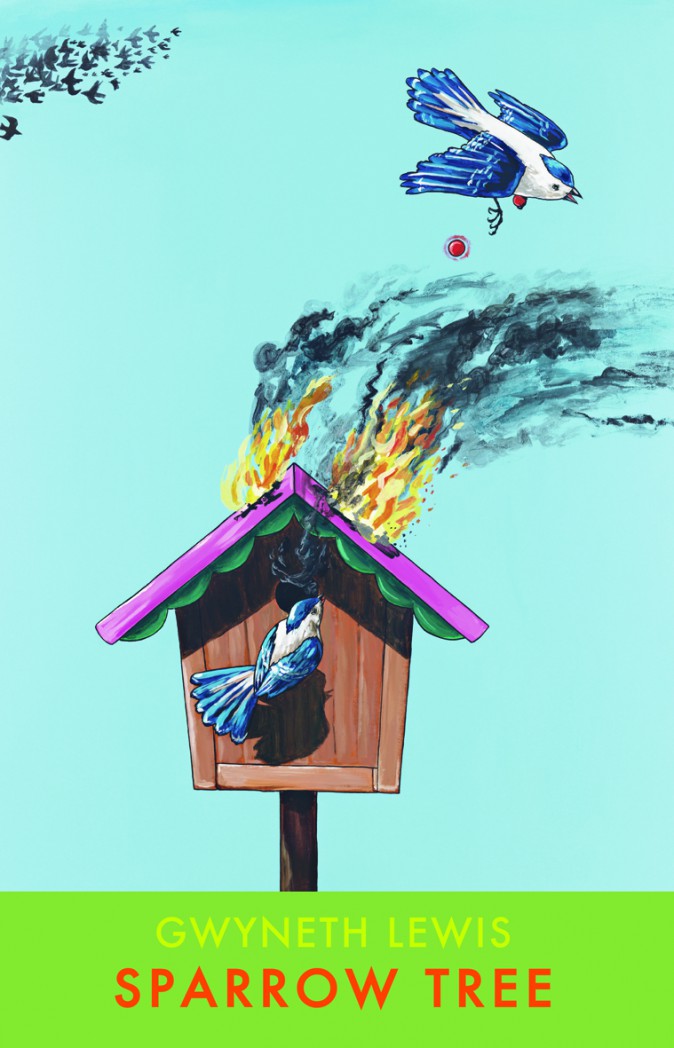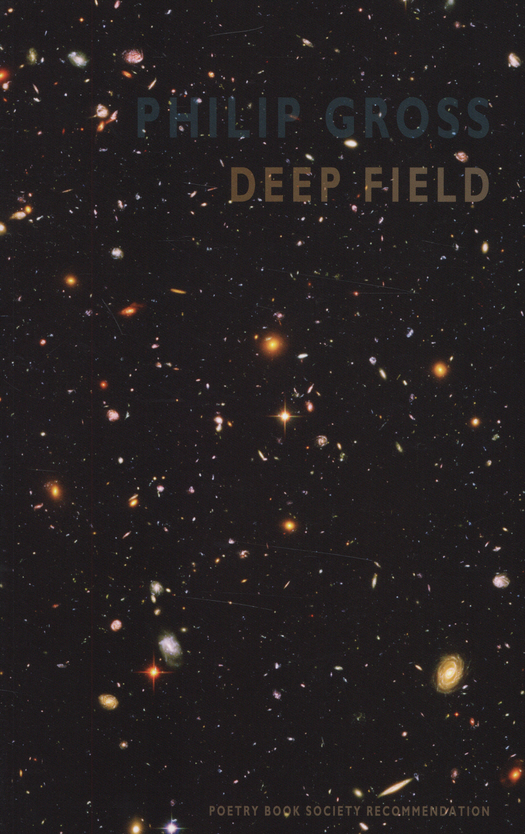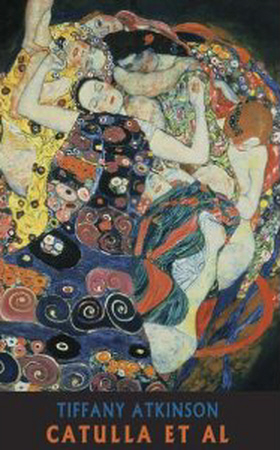Sparrow Tree by Gwyneth Lewis, the eventual winner of the award, is essentially a collection about birds and knitting. If you don’t carry a patient appreciation for either then this book is unlikely to make your top ten. The poems about birds take up a lot of space but fail to reach much depth beyond replacing emotive actions with specified birds, where ‘to see you is egret’ and ‘holding your hand is wagtail’. Gwyneth Lewis attempts to morph humans and birds into one but never reaches the heavenly heights of ‘Blackbird’ by R.S. Thomas, this deep a connection being seemingly less tangible than God conveying ‘the austerity of his thought’ to us through birdsong. The poems revolving around knitting, ‘Quilting for Childless Women’ and ‘How to Knit a Poem’ involves sequences which add up to twenty one poems when read separately. ‘Quilting…’ slices through monotony with gritty sadness, elevating knitting from a leisure activity or a thrifty quick fix into a form of distraction, a frenetic energy-burner, a saviour. These pages are clouded with death but these depressions, although they threaten, do not unstitch her, for ‘moral DNA/Is heritable as light, twice as strong.’

by Gwyneth Lewis
Beyond the birds and the needles, before we reach a physical, solid horizon towards the end, we travel overseas with the narrator, in ‘Imaginary Walks in Istanbul ‘:
I’ve drunk cool sherbert and lemonade
in Bosphorus villas: quarters of mind.
Untaken photographs will never fade
because they’re unreal. I want a dervish,
Neck broken, to spin like a radar dish.
A Muslim and an animated display of wild rituals sets the scene for a description of a place the narrator has never, in reality, travelled to. The narrator seems well aware of the concept’s minuses and dangers, of the possibility of alienating some readers, or getting things wrong, and insures herself well enough. The poem is split into six sections and the strict rhyme scheme is conformed to each go round. Are the characters who appear worthy of their stereotypical idiosyncrasies? I cannot honestly answer, as I haven’t been to Istanbul, but limitations to imagination may be the crucial part of the poem. The characters are nevertheless amusing to stumble upon:
In the park by Taksim
Square: ‘Madame, I am not a cannibal,
I merely wish to sell you a kilim
from my native province.’ And, like a fool,
I let him. There are no silent letters
in Turkish, and he was so affable…
Phillip Gross was named the public’s favourite, winning the Media Wales People’s Choice Award, but does this success owe more to his reputation than the content of this collection? Deep Field is a personal conversation, or elegant rant, between the poet and his father. The collection is adhesive, the poems well-matched and as comfortable in each other’s company as relatives, but this isn’t Gross at his best, and there are far more deserving collections which should have made the shortlist in place of this one. There aren’t many poems here, mostly long ones which tend to build up the atmosphere then drag, and every poem, except the very last, makes use of brackets, which gets irritating after a while.

by Phillip Gross
Gross’s father lost his several languages to deafness then, later, aphasia. Deep Field is Gross’s attempt to dredge the silence, his reactions and thoughts to the diminishing of a gift of a vocabulary. In ‘Something Like The Sea’, he dwells on the words washed up on the tideline:
too much, too
heavy, you said later, what child
could need it—
languages I never heard you speak
and so I grew
bilingual in English and silence,
grew a stammer
that said something, too.
Language, in its universal sense, has become rightfully ours. Its defects are betrayals. Speech, and communication through speech, belongs to everyone. So what happens when our power of speech dies long before we do? What happens when this curse befalls those around us, those we love and love to communicate with? Gross endeavours to get to the bottom of the conundrum. He fails, of course; even Gross would have known that such a feat isn’t possible in its entirety, but he gets close enough, although his thinking sometimes, as in his previous collections, can become too abstract, carrying too much intellect and not enough reality that we can attach ourselves to. Poetry would be a sadder world without the odd bout of pretentious intellect but for Philip Gross, it makes him and breaks him. This is why, in one poem, he spectacularly succeeds, and why, in the next, he flounders.
Given my enjoyment of the erotic and seedy poetry of the Roman poet Catullus, or at least the refreshingly brutal honesty and dark humour of it, I am perhaps not best placed to be reviewing Tiffany Atkinson’s collection modernising the concept, not so much translating the poems but putting a new spin on them, where the heroine (see, modern already), Catulla, is just as honest, or almost, anyway, about today’s world, where only the names have stayed the same. But the milieu in Catulla Et Al is so sinisterly captivating and addictive that you wonder if this book will be as lasting as Catullus’s own creations. It is possible that only a female poet who has taken on the traits of an alpha male could impress me so much, but, aside from the fact that taking on a grippingly real, if controversial, voice, in Gaius Valerius Catullus, (c.84-c.54 BC), and revamping it to a female version is pretty daunting and difficult in itself, the poems in this collection are consistently strong. There are so few weak poems in this collection they become an irrelevance. The poems in the second section of the book, in which Catulla no longer reigns as narrator, may not be as entertaining or have such a collective impact, and consequently may come as a bit of an anticlimax, but there are still some glorious poems here. And how refreshing it is to come across a split in a collection which actually employs a practical and worthwhile function.
Fans of Catullus might be sceptical, and readers who find him distasteful might not open the book with much optimism, but there’s a nice fireside story in store for both camps. The book never reaches the honesty and vulgarity of Catullus’s poems (it isn’t really surprising that his poems went missing for more than a thousand years), but for the twenty first century it is strong stuff, while still retaining good quality writing and an absorbing magical atmosphere. This might be role playing compared to Catullus but the poems are beguiling, entertaining, and whether you love Catullus or loathe him becomes irrelevant.

by Tiffany Atkinson
We really get into Atkinson’s head, although, where Catullus courted controversy with his seediness, his lust, the desires of Catulla have been downgraded to a 15cert, pre-probed, not so much purified but given practicality. In ‘Clodia’, with Catulla’s desire for a man comes jealousy for the man’s wife, a woman so admirable Catulla ends up hating herself rather than her rival, armed with enough self-awareness to know she is ‘the stickyfingered brat still clamouring at/the apron, whining.’ In ‘Aurelius’, she is annoyed at herself for her desire for the eponymous rascal, but cannot control her emotions:
And Rufus’s youngest, ASBO-boy,
whose hot-wire skills are known through
seven counties, leads the after-school-club’s
weekly Meditation On The Pure Heart!
Mentorship, they call it. Leave him well
alone, you half-cut Saesneg kiddy-fiddler,
was how Rufus put it to him outside
Dempsey’s. So she heard. And just like
that, was freshly smitten with his total,
solar inability to give a shit.
Who hasn’t lived on an estate like this? The reinstated old-fashioned names aside. You might wish the lines read ‘Leave him well alone’ and ‘And just like that’ so you aren’t left with too wide a gap, but you can read it to yourself how you wish (just don’t tell the author). The growing, ominous familiarity of paedophilia and vengeance adds to this spin-off’s modern feel, while echoing the incessant grittiness of the original Catullus poems and their captivating immoral honesty. The tales, at times, can become sharply modern in context, such as in ‘Micra’, in which a woman acts as taxi driver for her drunk teen nieces. And is there anything more modern than the freedom of scathing expression this particular female enjoys voicing: ‘It’s not enough / that you look less at me / than at a passing bicycle’? If only the female friends and lovers of Catullus had been so outspoken, and with such dry humour, how many more great poets would we be able to unearth from that era? Neil Astley, think of the anthologies…











